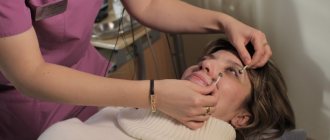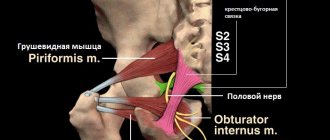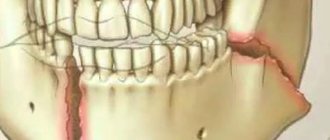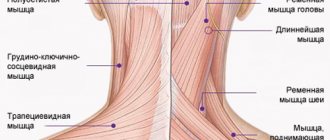Acoustic neuritis (another name is cochlear neuritis) is a disease in which inflammation occurs in the auditory nerve and sensorineural hearing loss develops.
Our expert in this field:
Lashch Natalia Yurievna
Neurologist of the highest category, candidate of medical sciences, associate professor. Laureate of the Moscow City Prize in the field of medicine.
Call the doctor Reviews about the doctor
Some facts about the disease:
- Hearing is impaired to varying degrees in 6–8% of people.
- There are two types of hearing loss: conductive hearing loss is associated with a violation of the conduction of sound vibrations to auditory receptors, sensorineural hearing loss is associated with damage to nerve structures. Neurosensory is 3 times more common.
- Women get sick more often than men.
- Cochlear neuritis is a polyetiological disease, that is, it can be caused by various reasons.
- There are acute and chronic forms of hearing loss.
- In approximately 3–6% of patients, the disease leads to communication difficulties.
How is the auditory nerve structured?
The vestibular-cochlear nerve is the eighth pair of cranial nerves, which consists of two parts: the vestibular nerve transmits information about the position of the human body to the brain, and the cochlear (cochlear) nerve is responsible for hearing. It collects information from receptors in the organ of Corti, which is located in the inner ear. It is here that sound vibrations are transmitted from the external auditory canal and the tympanic cavity.
When the cochlear nerve is damaged, its function is impaired, which manifests itself in the form of hearing loss and tinnitus.
What is neuralgia of the auriculotemporal nerve?
From the name of the disease it is clear that it affects the nerve. Nerves in our body are a kind of conductors. They transmit signals from the brain throughout the body. Their network is represented by dozens of fibers, united in broad groups.
The network of nerves leaving the brain is called cranial. They are responsible for vision, hearing, smell, facial sensitivity and other important functions of the body. Part of the cranial system is the group of trigeminal nerves .
It is one of its many branches that is the auriculotemporal nerve. Its path runs through the temporal region and the front of the ear (through the concha and skin). It does not pass separately and is connected by other nerves of the cranial group. Thanks to it, the described areas of the body become sensitive.
Neuralgia of the auriculotemporal nerve is a rare disease. The disease is often called "Frey's syndrome" or "Frey-Bayarger syndrome" . This is due to the fact that the disease was first described by the French psychiatrist Bayarger. Later, in 1923, the Polish doctor Lucy Frey gave the set of symptoms considered by the Frenchman a more complete description and called them “auriculotemporal nerve syndrome.” Subsequently, this disease began to be named after Dr. Frey, and to this day this neurological pathology is called “Frey syndrome.”
It is worth noting that by “Frey's syndrome” doctors understand a specific set of complaints, the main one of which is sweating. That is, we are not talking about pain. The syndrome implies a specific manifestation of the disease - increased sweating and a number of related symptoms.
Treatment of acoustic neuritis
Depending on the nature of the course of cochlear neuritis, treatment can pursue one of two goals:
- In acute illness, as a rule, they strive to restore hearing.
- In chronic cases, they try to stabilize the process so that hearing does not decline further.
In the acute form, hospitalization of the patient in a hospital is indicated.
Drugs for the treatment of acoustic neuritis
Medications used:
- Vasodilators - help normalize microcirculation and improve the nutrition of nerve fibers.
- Antiplatelet agents - reduce blood viscosity, thereby improving blood flow in small vessels.
- Neuroprotectors - stop and prevent damage to nerve tissue.
- Nootropics - improve the functioning of the nervous system.
- Antibiotics - used if the disease is caused by a bacterial infection.
- Hormonal anti-inflammatory drugs - help reduce inflammation.
- Infusion therapy - intravenous infusions of various solutions through a dropper help remove toxins from the body that have led to damage to the nervous tissue.
Physiotherapy procedures are prescribed: electrical stimulation, phonophoresis with medications. Sometimes they resort to acupuncture. Sometimes surgical treatment is required for cochlear neuritis:
- Installation of a cochlear implant - a prosthesis that helps partially restore hearing.
- Removal of hematoma, tumor and other formations that compress nerve fibers and cause neuritis.
- Removal of a neuroma , a benign tumor of the auditory nerve.
- Constant painful tinnitus , recurring severe dizziness.
If treatment is started on time, hearing can be restored in approximately 50% of patients, and in another 40% significant improvements can be achieved. In the chronic form of the disease, hearing restoration becomes impossible; the doctor tries to prevent its further deterioration.
Take care of yourself, book an ENT consultation now
Message sent!
expect a call, we will contact you shortly
Acoustic neuritis leads to a condition called sensorineural hearing loss.
Symptoms of the disease
Acoustic neuritis manifests itself in two main symptoms:
- Hearing loss: the perception of sounds deteriorates, a person understands other people’s speech worse. Over time, complete deafness may occur.
- Noise in the ears: it can vary in pitch and is caused by inflammation and poor circulation.
Possible consequences and complications
It should be understood that auriculotemporal neuralgia initially develops as a complication . In this regard, the specific consequences depend on the cause of the disease and the degree of neglect.
The stage and extent of damage can be determined by studying the symptoms. They may not include pain and may be limited to sweating and redness while eating. In this case, the stage is considered mild and can be easily treated conservatively.
In any case, it is necessary to identify the cause of such symptoms. Perhaps untreated inflammation is to blame. When it is eliminated, the symptoms should disappear. The pain can also have varying degrees of severity and occur only during eating, or be constant. In the second case, the stage is considered advanced and requires complex treatment.
How do symptoms of acoustic neuritis occur? How does the disease progress?
In the sudden form of the disease, hearing loss increases very quickly - within 12 hours. In this case, hearing decreases very strongly, right up to complete deafness. The disorder usually occurs on only one side—right or left. With a sudden form of hearing loss, hearing often disappears during sleep, which can cause a person to wake up. There is a feeling as if “the telephone wire has broken.” It is believed that most often this condition is caused by circulatory disorders in the inner ear, as well as viral infections: herpes, mumps, measles.
If similar manifestations begin to bother you, do not hesitate to visit a doctor. The medical center International Clinic Medica24 employs experienced neurologists and ENT doctors; we can undergo all types of diagnostics using modern equipment.
Unexpected deafness can be very frightening, but in about half of patients this form of the disease goes away on its own in the coming days.
If symptoms increase over the course of a day or longer, this form of auditory neuritis is called acute. If the disease is not treated, over time its course becomes subacute and chronic.
In addition to hearing loss, symptoms such as dizziness, nausea and vomiting, and impaired balance may be bothersome. This indicates damage to the vestibular nerve, which, together with the auditory nerve, is part of the vestibular-cochlear nerve.
Take care of yourself, book a consultation now
Message sent!
expect a call, we will contact you shortly
Why do you need to start treating the symptoms of auditory neuritis as early as possible?
The success of treating the disease directly depends on how quickly it is started. If the patient goes to the clinic on time, the chances of hearing restoration will be best. With chronic neuritis, there is no longer any talk of recovery - the doctor’s efforts are often focused only on preventing deterioration. The only way to at least partially restore hearing is to install a cochlear implant - a device that perceives sound vibrations through a microphone and transmits them in the form of electrical impulses to the brain.
Treatment methods
Treatment can be either radical (surgery) or conservative (medication) . Specific tactics depend on the scale of the lesion, the stage of development of the disease, and medical history. In any case, the main goal is to eliminate the cause of the syndrome (infection, inflammation) as much as possible.
To combat symptoms use:
- Analgesics (for pain relief): analgin, sedalgin, novocaine.
- Nonsteroidal anti-inflammatory drugs (to relieve inflammation): ibuprofen, diclofenac.
- Sedatives.
- Anticholinergics.
- Vitamins of group B and C.
Physiotherapy procedures are also prescribed: electrophoresis with potassium iodide, lidase, phonophoresis 2%.
Radical treatment is sought if there is no effect from symptomatic treatment. The essence of the operation is to cut the auriculotemporal and greater auricular nerves.
What symptoms of cochlear neuritis should you see a doctor for?
If symptoms increase gradually, it may go undetected for some time. Check yourself: do you have hearing problems from this list:
- When you talk with 2-3 people, you have problems, you perceive what you hear worse and ask again.
- You can hear your interlocutor less well in a noisy room.
- You understand speech worse if it is uttered in a high-pitched female voice, and better if it is spoken in a lower-pitched male voice.
- You have difficulty distinguishing high frequency sounds from each other.
- The speech of others began to seem less intelligible and intelligible to you.
- Your hearing becomes impaired if there is background noise during a conversation.
To consult a doctor
Message sent!
expect a call, we will contact you shortly
There are many different reasons that can lead to the development of cochlear neuritis and sensorineural hearing loss.
Infections
During infectious diseases, inflammation and swelling develop in the tissue surrounding the nerve fibers. In the best case, the process ends here, and after some time recovery occurs. If this does not happen, the nervous tissue begins to break down and is replaced by connective tissue.
The most common infectious cause of auditory neuritis (about 1/3 of all cases) is influenza. Other infections that can lead to cochlear neuritis: mumps, measles, rubella, scarlet fever, herpes, malaria, typhus, meningitis.
Etiology of the disease
In medical practice, the main cause of the development of neuralgia of the auriculotemporal nerve is considered to be damage to the parotid salivary gland . It, in turn, can be caused by a number of the following reasons:
- Damage during surgery on the parotid gland.
- Postoperative complications.
- Jaw injuries (localized in the parotid-masticatory areas).
- Infectious diseases affecting the parotid glands.
Operations usually mean radical treatment of infectious mumps. During surgical treatment, a number of microscopic nerves in the temporal region are removed. Thanks to the regenerative properties of the body, these nerves are restored over time.
But in some cases, a failure occurs, and regeneration occurs due to their growth into the sweat glands on the skin. This explains the typical manifestation of Lucy Frey syndrome - increased sweating . A kind of replacement of the sweat glands with salivary glands occurs.
The mechanism for the development of postoperative complications is approximately the same: autonomic and other nerve fibers grow into skin scars, followed by irritation of the autonomic fibers of the greater auricular and auriculotemporal nerves.
Also, a prolonged inflammatory-purulent process can lead to the development of neuralgia . In particular, the complicated course of infectious parotitis. The process follows the same pattern. Due to the progression of the disease, part of the salivary glands begins to collapse, causing destructive changes in the auriculotemporal nerve that innervates it. Moisture and sweat are directly released on the face due to the fact that the nerve endings responsible for various functions grow together with sweat fibers.
Thus, inflammation of the auriculotemporal nerve is a specific disease. As a rule, you cannot get it just by catching a cold. Most often it occurs as a complication after surgery.
In the case of diseases that cause complications of this kind, we are talking primarily about mumps . It is not a cold, but an infectious disease and can be prevented by vaccination.
Another reason for the development of auriculotemporal neuralgia is damage to the main chain of sympathetic nerves in the neck. In extremely rare cases, Frey's syndrome can occur in newborns (most likely due to birth trauma).
Thus, the main factors in the development of neuralgia are:
- Infectious diseases.
- Postoperative complications.
- Injuries.
Trauma as a cause of acoustic neuritis
Various injuries can cause cochlear neuritis:
- Common mechanical head injury.
- Barotrauma caused by a strong pressure difference. It occurs in people who are near the source of the explosion, in pilots, and submariners.
- Acoustic trauma is damage to the hearing organ caused by loud sounds.
- Vibration injury is most often caused by occupational hazards among workers in enterprises that are constantly exposed to vibration.
Especially often, a combination of vibration and acoustic trauma leads to damage to the inner ear.
Why does this pathology occur?
The etiopathogenetic mechanism of disease development is irritative. /
It develops reflexively if pathological vegetative impulses are received from chronic infectious foci or somatic organs suffering from an inflammatory process.
Diseases that are localized directly next to the ear node are especially dangerous.
These include:
- Periodontitis;
- Gingivitis;
- Stomatitis;
- Periodontitis;
- Ethmoiditis;
- Sinusitis;
- Frontitis;
- Sinusitis;
- Tonsillitis;
- Purulent otitis;
- Stones in the parotid gland;
- Sialadenitis;
- Mumps.
Neuralgia of the auricular nerve, provoked by a general infectious process, is less common. The primary diseases in this case include:
- Syphilis;
- Tuberculosis;
- Protracted sepsis.
Also, the root cause of neuralgia can be a separate infectious focus:
- Urethritis;
- Cystitis;
- Pyelonephritis.
Or somatic diseases:
- Cholecystitis;
- Cirrhosis;
- Gastroduodenitis;
- chronic renal failure;
- Adnexitis.
Sometimes the provoking factor is an endocrine disorder: diabetes mellitus or hyperthyroidism.
Poisoning with drugs and toxic substances
Some medications have ototoxicity, the ability to cause toxic effects in the inner ear. These drugs include some antibiotics (gentamicin, streptomycin, kanamycin, etc.), diuretics, antimalarials, and antitumor drugs. When poisoned by drugs, degenerative processes develop in the auditory nerve.
The risks are increased if two medications that have ototoxicity are taken at the same time. Treatment is safe only if it is carried out according to indications and as prescribed by a doctor, all drugs are used in optimal dosages. Among other substances, mercury and arsenic have a toxic effect on the ear.
How and from what should this disease be distinguished?
First of all, “Frey's syndrome” should be differentiated from other types of neurology that are similar in localization.
In particular, with neuralgia of the mandibular nerve. The diseases have similar symptoms, namely: pain in the temple and jaw.
It is also necessary to exclude ganglionopathy of the upper cervical sympathetic ganglion and neuralgia of the mandibular nerve.
Compression of the temporal nerve by a tumor can also cause similar neurological symptoms. To exclude oncology, high-precision instrumental studies are used: MRI, CT.
Other causes of acoustic neuritis
Cochlear neuritis can occur as a result of the following reasons:
- Impaired blood flow in the vessels supplying the inner ear and brain.
- Diseases of the cardiovascular system.
- Some metabolic disorders.
- Heredity.
- Neuroma is a benign tumor of the auditory nerve.
- Hematomas and tumors that compress nerve fibers.
In some cases, the cause of the disease remains unclear.
The main manifestation of cochlear neuritis is hearing loss, or hearing loss. It can be caused by various reasons.
There are two types of hearing loss:
- Conductive - associated with a violation of the passage of sound to the inner ear through the external auditory canal and the tympanic cavity.
- Neurosensory – caused by disorders of the nervous system. Sound perception suffers.
In order to determine the type of disorders and understand their causes, the doctor must carefully question, carefully examine the patient and prescribe all the necessary diagnostic methods. With neuritis of the auditory nerve, hearing loss is sensorineural in nature.
Take care of yourself, book a consultation now
Message sent!
expect a call, we will contact you shortly
Clinical picture: symptoms and signs
Symptoms of the disease can be divided into two main groups:
- Pain syndrome.
- Specific manifestations.
The pain is usually localized in the temple area, in the ear, and also in the temporomandibular joint. It usually occurs during meals.
Specific manifestations include swelling in the area of inflammation (in the temple area), increased sweating and salivation, redness of the skin at the site of injury.
Typically, patients suffering from Frey's syndrome complain of:
- burning pain;
- throbbing pain that radiates to the lower jaw;
- attacks of sweating during meals (large drops of sweat appear on the forehead and temples);
- increased salivation.
In some cases, in addition to swelling and increased sweating, the patient experiences sensations of heat and tingling. The disease usually develops against the background of a so-called functional disorder of the nervous system.
All symptoms tend to manifest themselves and intensify while eating. This is due to the etiology of the disease. The patient reacts especially sensitively to sour and salty foods - they aggravate the symptoms.
Additional symptoms and manifestations that may be associated with Frey's syndrome include redness and warmth in the affected areas. This is a rare but important complaint.
Find out more about trigeminal neuralgia:
- inflammation of the nasociliary nerve and damage to the ear node;
- symptoms and diagnosis of trigeminal neuralgia;
- methods of treating the disease.
Diagnosis of acoustic neuritis in the doctor's office
The diagnosis and treatment of the disease is carried out by ENT doctors and neurologists. During the conversation, the doctor may ask you the following questions:
- When did you notice that your hearing was getting worse? How exactly did this manifest itself?
- Are you bothered by ringing or tinnitus?
- What preceded the onset of symptoms? Have you had any infections? Have you had a head injury?
- Did your close relatives suffer from similar disorders?
- Are you worried about dizziness or nausea?
- Does hearing loss worsen over time?
Examination by a doctor: diagnostic methods that help assess hearing status
The following tests are used to diagnose cochlear neuritis and can be performed in a doctor's office:
- Otoscopy. The doctor examines the external auditory canal and eardrum using a special device - an otoscope. This helps rule out other conditions that could cause hearing loss.
- Acumetry. A test that helps identify the difference in the perception of normal speech and whispering.
- Weber's test. The doctor places a ringing tuning fork in the forehead or crown area. The healthy ear hears the ringing, but in the affected ear it is felt weaker or not heard at all.
- Rinne's test. The doctor brings a ringing tuning fork to the patient's ear and waits for it to quiet down. Then a ringing tuning fork is placed on the temple. With hearing loss caused by acoustic neuritis, the patient hears ringing worse in both cases.
- Tympanometry. The doctor examines the mobility of the auditory ossicles and eardrum by changing the pressure in the ear canal.
- Audiometry. Study of the perception of sounds of different frequencies using a special device - an audiometer. Helps determine the degree of hearing loss.










